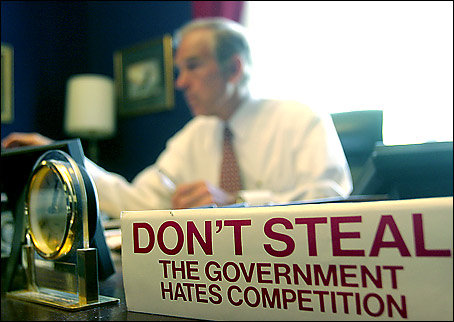For that matter, if you keep a ledger to track off of your illegal transactions, that ledger is also an extension of your memory...and yet it can be used against you in court.
The only difference here is that the ledger is encrypted. In other words, if you are a mafia boss who is not mathematically sophisticated, you will go to jail. If you are mathematically sophisticated and can encrypt the data, you get off scot free.
Suppose you only hire someone to set up your encryption. Do you feel that the government can't force that guy to decrypt the data? They are not using it against him, so the 5th amendment is irrelevant, but the data is still your thoughts stored electronically, so they would still be using your information against you.
Do you think diaries should be inadmissible, just because they are extensions of memory?
These are all very good points. You are simple arguing, who gets charged with a crime is dependent on who has the better memory and how good their memory is on committing a crime.
But from my point of view, as an anarchist, similarly, I would argue, who gets charged with the crime in the first place, has to do with who is in a powerful enough position to not get caught, or manipulate the correct law, agency, or regulatory arm of the government.
Ramona Fricosu, who lives in rural southeastern Colorado, was indicted a year and a half ago on suspicion of mortgage-related bank fraud. Authorities seized several computers from her home, at least two of which were encrypted, according to her lawyer, Phil Dubois. One encrypted machine was already unlocked when it was seized, its records freely accessible, but another was protected with a password.
This sounds like the type of business associated with all of the smaller lending companies attached to the "too-big-too fail" banks, and the quasi-government, partially privatized Fannie and Freddie scams that fund the major politicians that run the system. You know, the Country Wides, and the Lending Trees. These were all bought up and bailed out however, they had to be, in order for the system to stay solvent.
Smaller operations? Well, their "malfeasance," shit, now
THAT needs to be prosecuted, b/c they never donated to the right politicians, right? :shrug:
Let's not confuse the issue here. If it's all right to make a buck for the one percent by breaking the law, why not for everyone else? Laws don't mean shit in this country anymore, why do the corrupt ruling class only enforce them when someone else is making a buck off of the system?
Sure, this joker probably broke the law, but using her own records against her to prove it is just dirty and low when the vultures on Wall Street have gutted this country and bought the law makers and judges out doing the same damn things. Hypocrisy at its finest. What happened to this once fine country. If they can't prove it w/o stripping away the common decency and protections of what is left of our constitution, they shouldn't bother. This is small potatoes. If they are so concerned, nail her on her income taxes. Crookes and theives are pretty predictable, just watch 'em.


